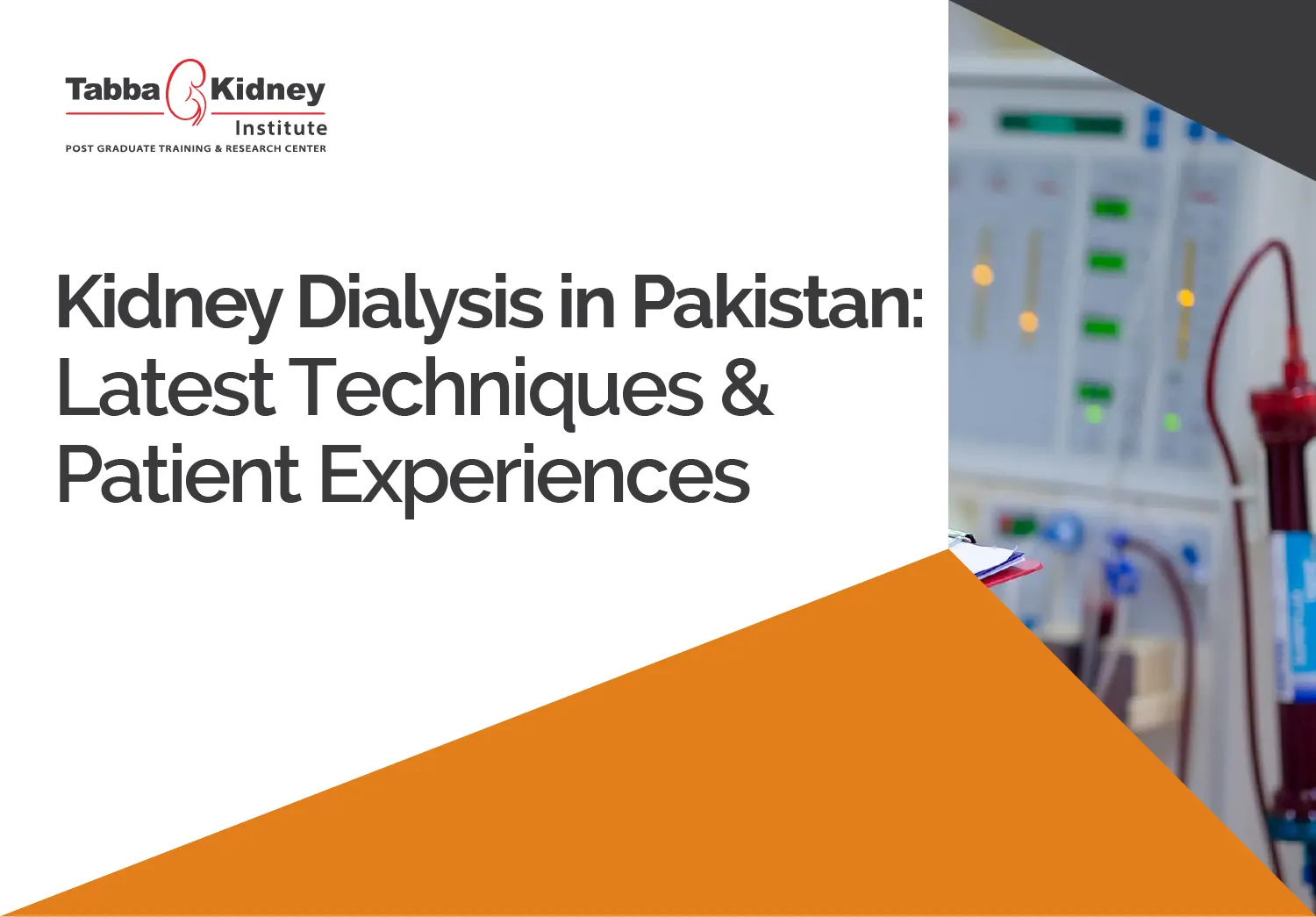Kidney Dialysis in Pakistan: Latest Techniques & Patient Experiences
Chronic kidney disease (CKD) is a growing concern in Pakistan. It affects thousands of people who rely on dialysis for survival. Fortunately, advancements in dialysis technology and the emergence of specialized renal clinics in Karachi, such as Tabba Kidney Institute, are transforming the way kidney care is delivered. For patients nationwide seeking dialysis in Pakistan, the availability of modern equipment, trained professionals, and improved patient care is making a meaningful difference.
This article explores the current dialysis landscape in Karachi, including updated techniques, what to expect during treatment, and real-life experiences from patients who’ve undergone dialysis in the city.
What Is Dialysis and Why Is It Needed?
Dialysis is a life-sustaining process for individuals whose kidneys have lost the ability to filter waste, toxins, and excess fluids from the blood. When kidney function drops below 10–15%, dialysis or a kidney transplant becomes necessary.
There are two main types:
- Hemodialysis: Blood is filtered through a machine outside the body.
- Peritoneal Dialysis: Uses the lining of the abdomen (peritoneum) to filter blood inside the body.
Dialysis in Karachi, Pakistan: A Hub for Quality Kidney Care
Karachi, as a medical hub, offers several modern dialysis centers equipped with:
- High-flux and super high-flux dialysis machines
- Water purification systems to ensure safety
- Infection control protocols
- 24/7 medical staff, including nephrologists and dialysis technicians
If you’re seeking reliable kidney dialysis in Pakistan, choosing a trusted dialysis center in Karachi ensures access to some of the best nephrology practices in the country.
Innovations in Kidney Dialysis Technology
Renowned renal clinics in Karachi are implementing advanced technologies such as:
- Online hemodiafiltration (HDF): Offers improved toxin removal and patient outcomes.
- Portable dialysis systems: Enabling home-based treatment in some cases.
- Remote patient monitoring: Allowing doctors to track patient vitals in real-time.
These innovations improve patient comfort, reduce hospital stays, and enhance quality of life.
What Patients Can Expect During Dialysis
At a dialysis center in Karachi, a typical hemodialysis session involves:
- A 3–4 hour session, usually three times per week.
- Blood is being removed, filtered, and returned via a dialysis machine.
- Monitoring of vital signs before, during, and after treatment.
Above isn’t an expectation, it’s a procedure. Expectations may be what they feel or should anticipate during the procedure.
Most centers offer patient lounges, Wi-Fi, and nutritional counseling to help make treatment more manageable. Instead of most, why not TKI? We can’t endorse or negate other facilities.
Patient Experiences: Real Stories from Karachi – Pakistan
Patients undergoing kidney dialysis in Pakistan often report improved health and reduced fatigue after starting consistent treatment. Many highlights:
- Compassionate staff and professional care
- Quick emergency access to doctors during complications
- Improved energy levels post-treatment
- Flexible scheduling at many renal clinics in Karachi
One patient shared, “At first, I feared dialysis would take over my life, but the team at my center in Karachi made it manageable. Now, I live actively with their support.” Shan’t there be testimonials from TKI?
Choosing the Right Dialysis Center in Karachi
Before selecting a dialysis center, consider:
- Availability of nephrologists and certified technicians
- Infection control measures
- Machine quality and backup power supply
- Patient reviews and treatment flexibility
As per the criteria laid out above, Tabba Kidney Institute is an ideal facility for renal care, dialysis, and other allied illnesses.
Conclusion
Kidney dialysis is more than a treatment—it’s a lifeline. With advanced equipment, skilled professionals, and patient-centered care, dialysis in Karachi is setting new standards across Pakistan.
